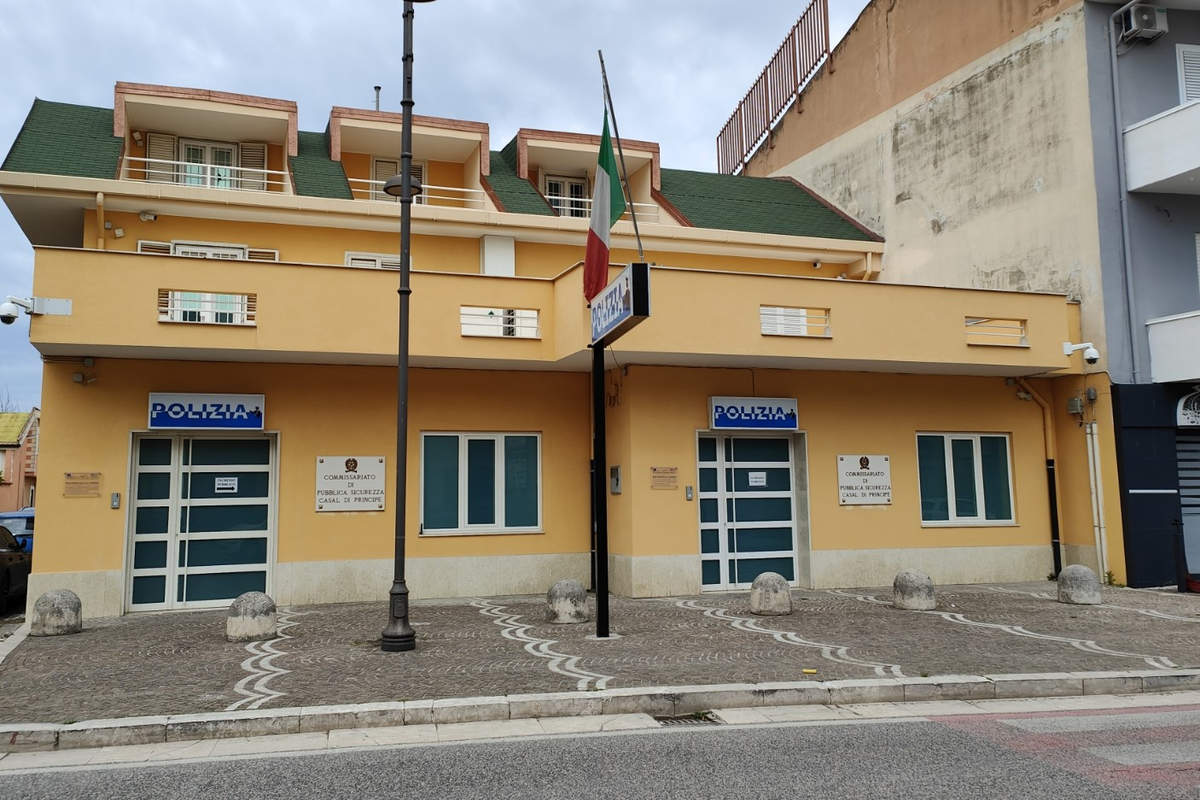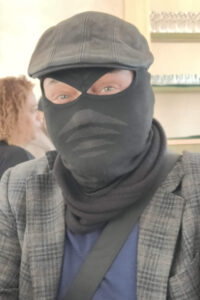At the invitation of the Crimhalt* association, the families of victims of the recent settling of scores in Marseille have just immersed themselves in the land of the Camorra. To learn from the Italians of the anti-mafia how to position themselves in the face of organized violence. We were there with them.
By Frédéric Crotta
When the house of a Camorra boss becomes… a police station (2/3)
The building is brand new. Located on Corso Umberto in the heart of Casal di Principe, the stronghold of the Casalesi clan, the Camorra family of Campania. A property steeped in history.
For several decades now, the Italian authorities have been able to seize the property of arrested mafiosi. Not just cash and merchandise, but also the houses occupied by the organization’s top bosses and their families. Like this two-storey building belonging to the Schiavone family, dreaded mafiosi. Previously assigned to the judicial police, this house has now been restored and houses some thirty national police officers. It’s a powerful symbol for the whole population. A way of reclaiming territory. But not necessarily a guarantee of tranquility. As Michaele Pota, Superintendent of Casal di Principe, readily admits: “We receive anonymous threats from time to time, but that doesn’t stop us from continuing our fight against organized gangs. Last year, the police station made a major seizure of weapons from the mafia.

The repentant face to face with the victims
The emotion was too strong. Ouassila didn’t want to shy away, and even before he spoke, she stood up and hid her tears out of sight. Opposite us stands Luigi, a “pentito”, a repentant member of the N’Drangheta.
The man with the blue eyes gives off a strong impression and, to put it bluntly, creates unease. This is undoubtedly what drove away Ouassila, whose young son Brahim was killed by a gunman during an ambush in Marseille.
Even if the context is very different from the situation in Marseille, contact with a Mafia gunman can undoubtedly upset the families of these French victims.

Luigi gives a detailed account of the path that led him here. He readily admitted. “I was trained to kill. From a very young age, he was taken to slaughterhouses to learn the taste of blood. He was forced to torture and kill animals. “I had no childhood. I was raised as a child soldier,” he admitted. A child who went through all the stages until he became The Boss. But to do so, he had to prove himself by becoming an enforcer, a killing machine. A man of dirty work within this Calabrian family linked to the N’Drangheta, one of the world’s most powerful organizations.
“Obviously, I regret what I did”.
He now lives as “a traitor”. With a sword of Damocles hanging over his head. He narrowly escaped death. His own “dishonored” father even takes part in an ambush. Luigi miraculously escaped, but by shooting his father in the legs.
Then, in 2007, he decided to collaborate with the law and brought down a number of mafiosi. Initially protected by the police, he is now looked after by a group of close friends.
Speaking to the two other Marseilles residents also affected by the loss of a child or nephew, he says: “Of course I regret what I did. No matter how much I ask for forgiveness, I know it’s not enough.
Luigi speaks up from time to time, in small groups, to tell his story. A form of redemption.
At the end of a tense, emotionally-charged interview, Atika Saib, aunt of Sarah, the 19-year-old murdered with 9mm bullets in Marseille’s Belle de Mai district in 2020, approaches him. She, who was approaching this meeting with apprehension and a heavy heart, ends up shaking her hand. I can’t forget the harm you’ve done, but I recognize that your actions today are to be respected and applauded. Even if I can understand what you’ve been through, I understand above all the pain of a family who has suffered the loss of a loved one”.
Next article: “Radio Siani the “good waves” of the anti-mafia” (3/3)
